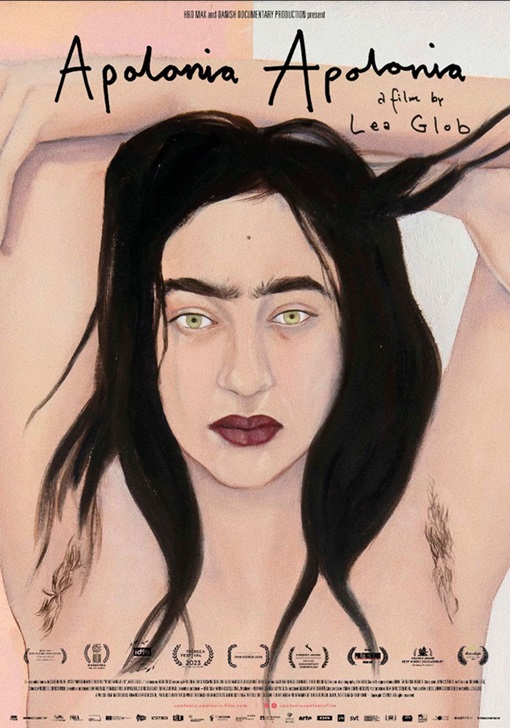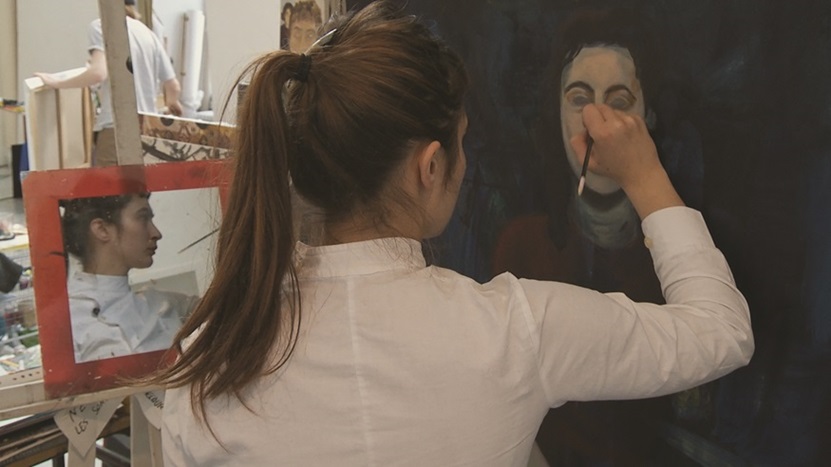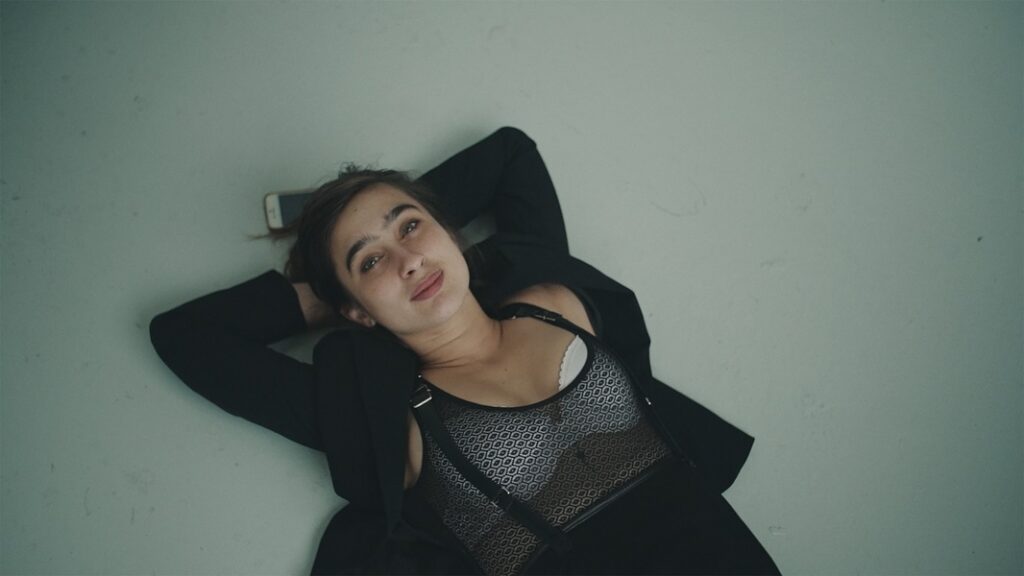
Making art is a very personal process, and it’s often hard to capture how someone else works. The best way to do so can be to simply watch them doing what they love and to inquire about what motivates them. It’s especially interesting to see if those two approaches match up, or if there are inherent contradictions in the product someone creates and what it is that they express has inspired them to make it in the first place. Apolonia, Apolonia is one such investigation that benefits from its filmmaker’s close relationship with its subject.
Apolonia Sokol is a French painter trained at the Beaux-Arts de Paris art academy. Her influences include her parents raising her within an artist community, and she experiences a number of highs and lows over the course of the film’s portrait of her. Behind the camera is Danish filmmaker Lea Glob, who has returned to Paris multiple times over many years to see what Apolonia has accomplished. In particular focus is Apolonia’s relationship with Ukrainian activist Oksana Shachko, whose presence in the painter’s life leaves a distinct impression and affects the way in which she views her art and its power.

As an examination of Apolonia’s work without looking at the person behind the brush, this film would likely be interesting enough. She has a particular style that truly fleshes out the intricacies of the people she paints, leaving something to the imagination but evoking a sincere passion and vision. But this film doesn’t stop at simply allowing those works to tell a complicated story. Instead, it dives deep into who Apolonia is and also who Lea is, tying their fortunes together to a degree in the way that Lea has clearly been affected by Apolonia and that the artist is aware that she is being watched, but still willing to open herself up for the camera.
Apolonia, Apolonia is a film about women from a director who, with only a few credits to her name, including Venus and Olmo and the Seagull, has already demonstrated that spotlighting women is of crucial importance to her. Apolonia’s journey as a woman in the arts is in full focus, and the obstacles she faces due to her gender have a strong impact on how she sees her work. Filmmaker and subject share similar frustrations, and Lea’s own experiences with her body and with motherhood, though rarely shown on screen, do still influence the lens through which she as a director examines her subject.

This film can’t possibly capture everything about Apolonia because she’s still able to guard her own secrets, but that’s part of what makes it so interesting. Seeing her as she prepares to showcase her work or processes what she’s going to do next presents a perspective that allows audiences to fill in the rest, and being intrigued about what they don’t know should be just as worthwhile as getting confirmation of what they do. Wanting to know and understand more makes sense, and this film offers as much information as it can while still preserving an air of mystery that makes its subject continually compelling.
Looking at Apolonia over the course of thirteen years feels like living through a dream, since she doesn’t always change in visible ways and time doesn’t seem like it’s passing nearly that quickly for it all to fit within just under two hours. Edited together, it plays like a seamless immersion into Apolonia’s life, one that presses her to answer questions about her life but never forces her to reveal more than she wants. Examined alongside her paintings, this film reaches an appropriately satisfying conclusion while still leaving plenty to ponder.
Grade: B+
Check out more of Abe Friedtanzer’s articles.
Apolonia, Apolonia is now playing at DCTV’s Firehouse in NYC.

